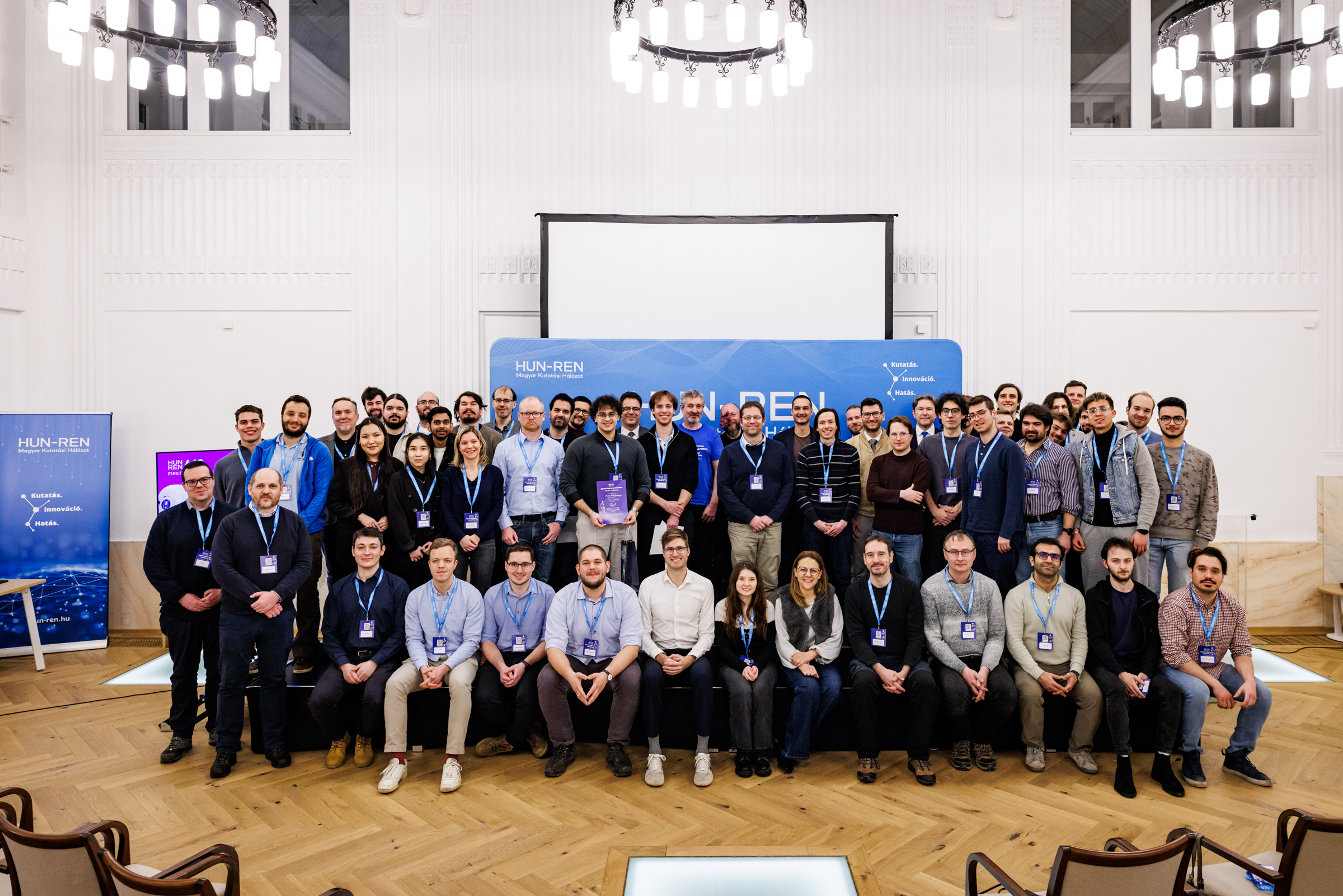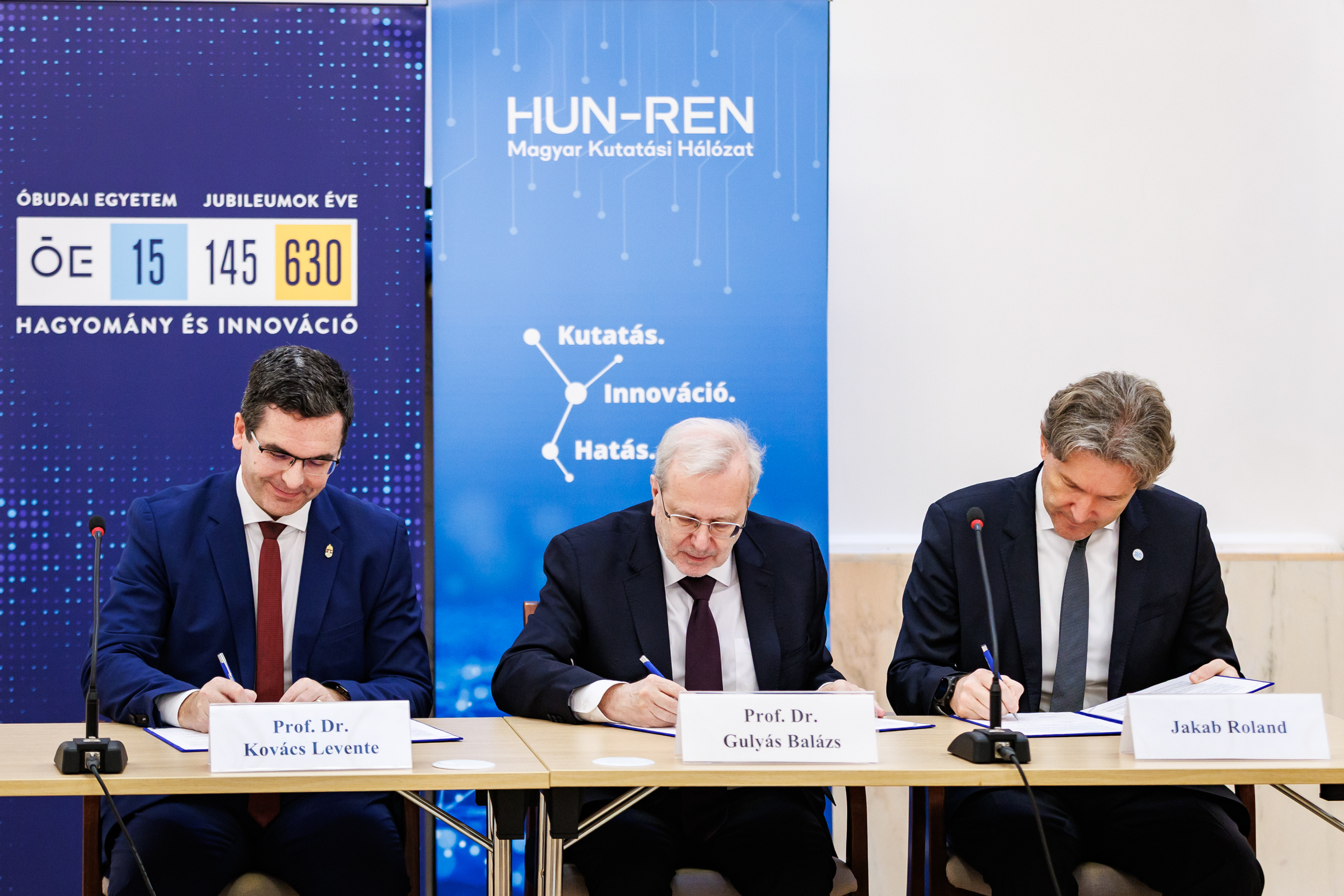Knowledge-Intensive Economy: Lessons from Singapore
"The most important question according to the Singaporean recipe for success is: Why are you doing the research?" emphasized Dr. Jui Lim, CEO of Singapore's SGInnovate and an expert in creating and operating deeptech start-up companies, to hun-ren.hu readers. Dr. Lim delivered a plenary lecture at HUN-REN’s IV. Strategic Workshop.
Dr. Jui Lim is the head of SGInnovate, an innovation agency founded in 2016 and owned by the government. The platform focuses on consolidating Singapore's innovation activities. Singapore is of strategic significance for Hungarian innovation due to its leading role in global innovation. Moreover, the rapidly developed and still pioneering state serves as a gateway for Hungary to the East Asian region. Coming from the globally acknowledged Singaporean innovation ecosystem, Jui Lim believes that while the components of success are well-identifiable, motivation and decisive leadership can create the ideal conditions for establishing and operating an innovation-driven economy, regardless of geographical location and culture.

"In Singapore, the initial motivation in 1965, at the time of our independence, was an empty stomach. Up until then, we had been a sleepy little fishing village with no particular ambitions. As you can imagine, it was a challenge for the government to change this mindset. Naturally, it helped that people's livelihoods were at stake, which spurred the initial mobilization. Over time, as successes came, people saw that the leadership delivered on its promises."
Starting from poverty, investing in education, science, and technology, Singapore has achieved its current recognition and earned the nickname "one of the Asian Tigers." It is noteworthy that the long-term economic strategy was founded on a national consensus characteristic from the very beginning. Dr. Lim confirmed that achieving agreement in this area (as with many others) was not particularly difficult in his country.
"I would say that ’selling’ an innovation-driven economy, a knowledge-intensive economy, is not difficult. Who wouldn't want a more exciting job? Who wouldn't want a higher salary, right? The hard task lies with the government; they must fulfill the promises made to society. I believe that achieving an innovation consensus should not be a huge problem. No one is going to seek a poorly paid job," asserts Dr. Lim.
In the innovation-focused Singaporean economy, Jui Lim assists in bringing the latest technological breakthroughs to market with his team of experts at the institution he leads, which in many ways has taken on corporate forms. He has many years of experience in identifying the prerequisites and other factors for successful technology transfer and summarizing the resulting conclusions.

"The first obstacle on the path to success can be obtaining a patent. This is a difficult task since intellectual property rights are strongly protected in every country. The next step, once you have the patent, is securing a license. The latter is important because if someone wants to buy a license from you, it means there is market demand for your product. Another factor in success is how much they are willing to pay you for the license. Then there is the question of whether you can start a company based on the product, specifically if you can secure funding for it. I'm talking about technology companies, and securing funding is not easy, even in Singapore, as incredible as that may sound. This is also where we, at SGInnovate, provide assistance. Another indicator of success is whether the company can continue to grow if and when the initial investors exit," says Dr. Lim.
SGInnovate takes an early investor role with a 10-20 percent ownership stake in the deeptech companies it supports. As new investors come on board and the business expands, SGInnovate's influence over company affairs diminishes. Dr. Lim explains that a key factor in maintaining competitiveness is that investors always want to see a return on investment, and consequently they ensure the conditions for growth.
"Of course, not every venture capitalist knows exactly what they are doing. Take the histories of Apple, Airbnb, or Uber, for example—sometimes the business model is so new that even so-called experts can't provide the right advice. New ventures are inherently risky. Consider Elon Musk—starting a company for Mars travel? Who would think of such a thing? This shows that often, individual courage is the most crucial component of success," says Dr. Lim.
When asked what advice he could offer to Hungary and Hungarian researchers, Dr. Lim responded with the same series of questions quoted at the beginning of the article:
"Ask yourself why you are conducting the research. Is it to satisfy personal ambitions, or a personal thirst for knowledge? Or do you believe that science has a purpose, namely to improve people's lives? If you believe the latter, then you must inevitably consider the practical, commercial application of your research—someone has to manufacture it, transport it, sell it, etc., otherwise, the results cannot benefit the public. It is my belief that true innovation is not for its own sake but serves the common good."

